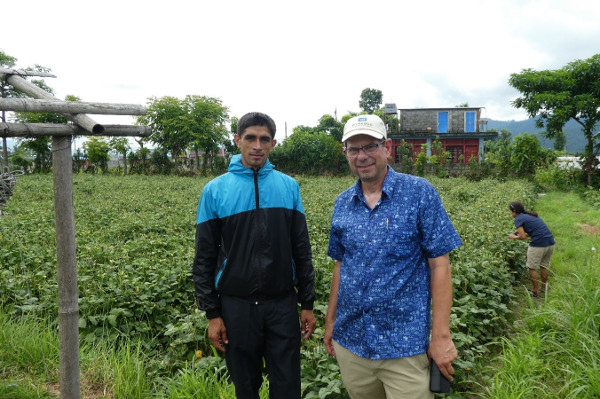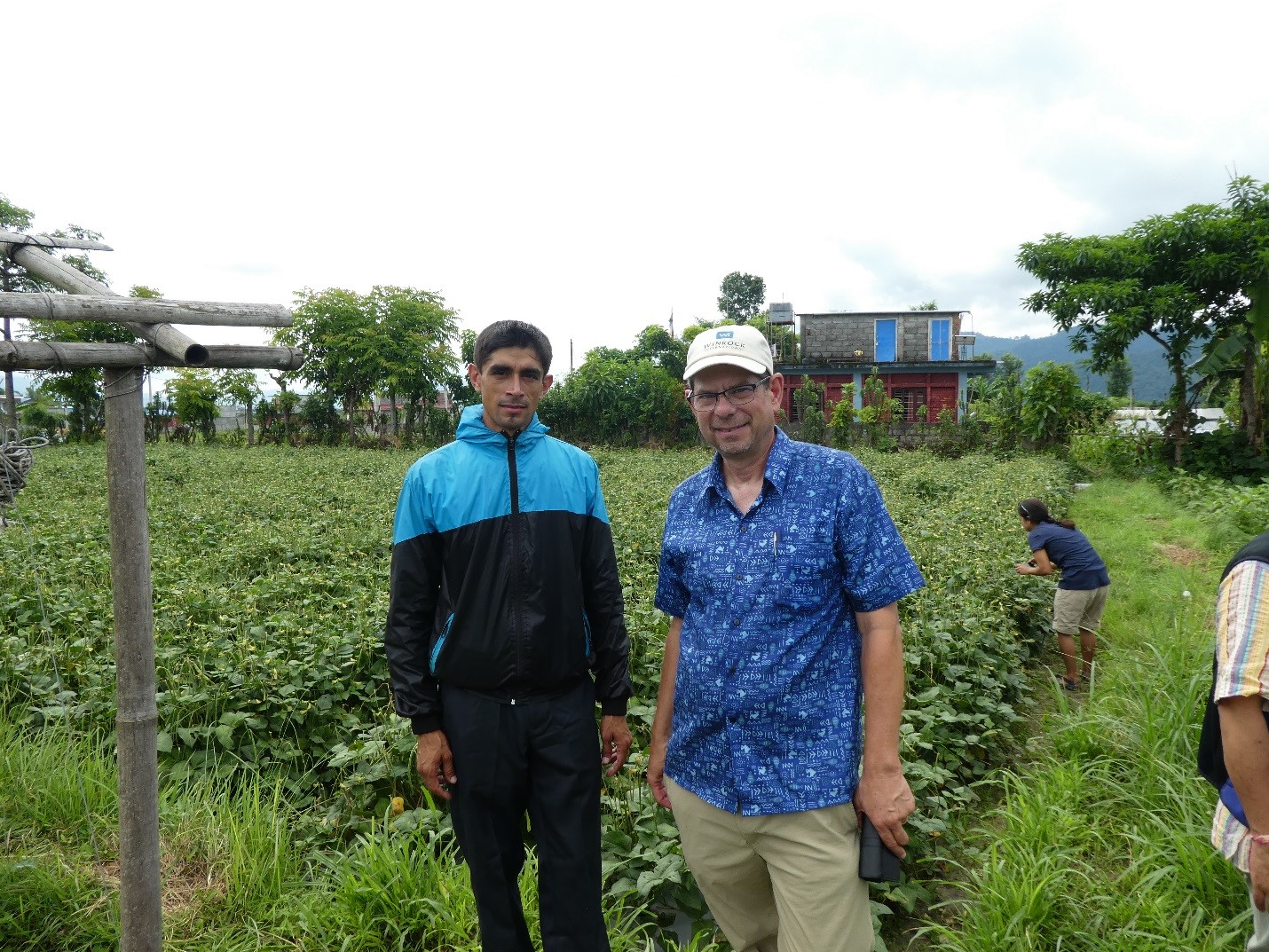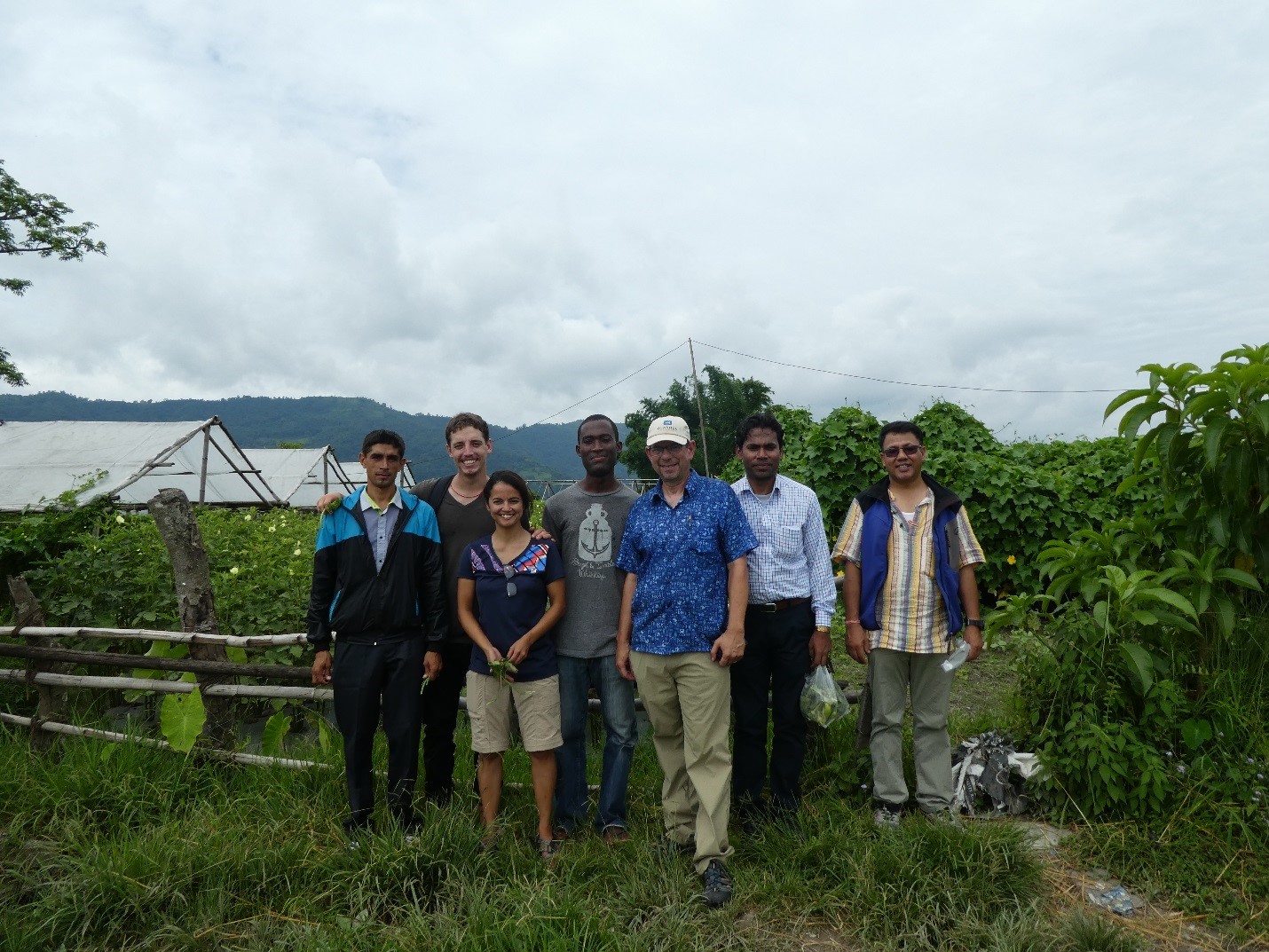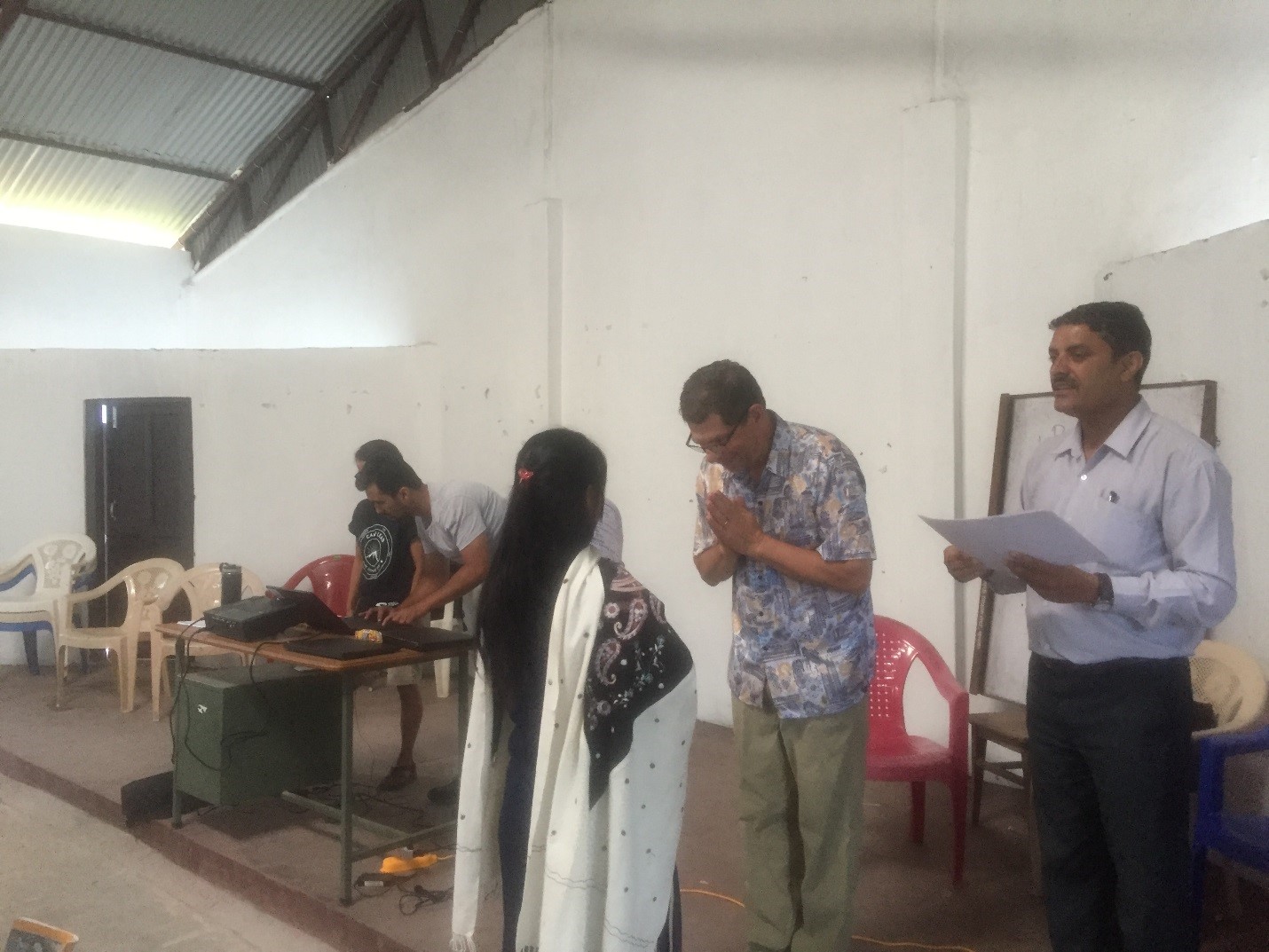
Volunteer Post
Navigating Nepali Roads to Reach Tomato Growers
F2F Volunteer, Carl Bannon
My volunteer assignment was to conduct trainings on Increased Safe Tomato Production through Integrated Pest Management (IPM). The training sessions were held in four village development committees (VDCs) in the Kaski region of Nepal, outside the city of Pokhara. The host organization was Dhikurpokhari Community Development Organization (DCDO). We conducted a 2-day training session in each VDC. I flew into Kathmandu, Nepal and was met at the airport by Arun Thapa from the Winrock Nepal F2F team. I was extremely grateful that I did not have to drive in Nepal. I was very thankful to have a Winrock driver and jeep! Kathmandu is a bustling city, the roads are windy and full of motorcycles, cows, dogs, cars, and trucks. There are no traffic lights or lanes that I could see and drivers bear to the left and the driver’s side is on the right, something I had a challenging time adapting to!
I then met with Winrock F2F Nepal Director Vrigu Duwadi at the Katmandu Winrock office. Vrigu gave me an overview of Nepali culture; the Namaste greeting, the food staple: Dahl baht (dahl and rice, which I loved) and logistics for the assignment. I also met with the International Development Enterprises (iDE) team in Kathmandu, who have been developing vegetable IPM packages for Nepal with the IPM Innovation Lab at Virginia Tech. The iDE team in Nepal: Director, Luke Colavito, IPM Coordinator Lalit Sah, and Agriculture Director Komal Pradhan, were great resources for IPM information. Lalit Sah and iDE Regional Manager in Pokhara, Balkrishna Thapa Magar, also joined us and assisted in some of the training sessions.
We flew to Pokhara and visited the Nepal Ministry of Agriculture’s Plant Protection Lab. We also visited an Agro-Vet in Pokhara that supplies seeds, fertilizer, and other crop inputs to area farmers.

From Pokhara, we conducted four 2-day training sessions in tomato IPM in small villages outside of Pokhara. Again, I was very happy to have Winrock’s driver Krishna safely navigate the mountain roads to the training sites to and from Pokhara. The growers have an excellent market opportunity with tomatoes in the off-season (rainy season) to provide fresh market tomatoes to the tourist city, Pokhara. They grow under plastic tunnels to keep the plants dry to prevent diseases. This is an income opportunity for young farmers to stay in their home villages with a viable business.
We asked the growers for inputs on their pest problems and other growing issues in tomatoes. Fortunately, most of the pest management issues were stated in the scope of work, so I was prepared. We discussed management of tomato diseases, such as Late Blight and insect pests like the newly introduced South American Leafminer (Tuta absoluta). A total of 125 growers attended the trainings, over half were woman growers and 58 were youth growers. We also had opportunities to make field visits to some of the growers’ farms.
The experience gave me new perspectives in many ways. As a teacher, it was new and interesting to work with a translator to deliver information. Arun Thapa from Winrock, Lalit Sah and Balkrishna Thapa Magar from iDE, and Sanjaya Timilsina from DCDO all helped with translation. They all have agricultural backgrounds so they were familiar with the subjects and effective in helping the participants to understand the material.
We had to be flexible and work around power outages. Having PowerPoint and a projector was not always an option, often we had to resort to drawing boards.
It was especially gratifying to have a group of people that were excited to learn about innovative ways to help them grow tomatoes profitably and safely. The growers have a unique opportunity with their tomato market in Pokhara.
Being in a profoundly different culture, climate, and economic conditions gave me a new perspective on all the things we take for granted here in the USA. Being able to give my time and knowledge to people who can use it to improve their lives was highly gratifying to me. I felt honored to be able to work with the Nepali growers, the teams from Winrock, DCDO, and iDE. It was also a pleasure to have US Peace Corps volunteers attend the training, many of them have tomato projects in their host communities. I’m hoping that the information presented at the meetings can be utilized by the agency staff and grower cooperatives. I would very much be interested in doing a follow-up project.

This experience changes how I approach my work here. It reinforced the importance of teamwork, it helps my tolerance level in dealing with difficult issues here. It makes me feel grateful that I have learned things in my career in agriculture that can help people in another part of the world improve their standards of living.
This was my first international experience and I hope to do more in the future.

